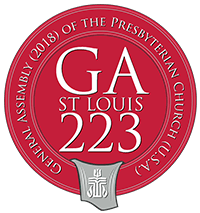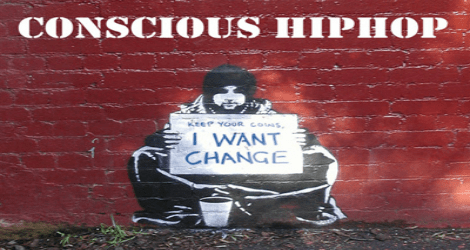God is angry.
God was angry in the Garden of Eden when Adam and Eve disobeyed God’s orders. God was angry when God heard Abel’s blood cry out from the dry earth. God was angry when God unleashed the floodwaters upon the earth so that there was nothing but sea and sky. God was angry when God heard the cries of the Israelite slaves in Egypt, crying for freedom. God was angry at Israel’s unfaithfulness in the time of the Judges. God was angry when God spoke through the prophets to condemn false worship and to name the true worship of doing justice. God was angry when God’s voice was no longer heard.
But then, God spoke. God spoke the Word, which became flesh and dwelt among humankind. God spoke to reconcile humanity to God, in spite of humanity’s inability to live up to God’s call for justice for the downtrodden. God spoke a Word of good news to the poor, release to the captives and recovery of the sight to the blind, freedom to the oppressed, and the proclamation of the year of the Lord’s favor. God spoke words of anger through the Word that embodied the right way to be angry, about the right things. God spoke words of anger through the Word, but within the anger, motivating the anger, was love.
God is love. And God is angry.
The Lutheran in me is squirming right now. All I want to think about is God’s grace and love that forgives all wrongs and makes all things right. I don’t want to think that God gets frustrated, let alone angry. Nor do I want to acknowledge that Jesus was pretty angry too. This temple table-turning, “get behind me Satan” screaming, frustrated with his incompetent disciples version of Jesus is not the calm, stoic, white-skinned, brown-haired Jesus of my Sunday School years. And he certainly isn’t the Jesus that the modern-day church says its members should emulate.
___________________________________________
The Lutheran in me is squirming right now… This temple table-turning, “get behind me Satan” screaming, frustrated with his incompetent disciples version of Jesus is not the calm, stoic, white-skinned, brown-haired Jesus of my Sunday School years.
___________________________________________
That table-overturning Jesus scares us. So does rage: a directionless, destructive, all-consuming emotion. But I do not think rage is the type of anger that Jesus embodied in his ministry. Nor do I think it is particularly productive, even if it is cathartic. Rather, Jesus modeled a focused, properly directed anger.
And like Jesus, Christians should be angry people. Our faith calls us to be outraged by the injustices we see in the world and to fight against them, propelled by our anger and supported by our faith in the Triune God.
But what is Gospel anger and how is it properly expressed? Rage, as noted earlier, does little but offer a cathartic release. Rage lacks the control that is needed to channel it into something productive. Rage is what happens when the natural and right response of anger is not permitted expression, is shamed and repressed, and thereby transitions from a feeling we experience to a blinding state of being: we do not feel rage; we are rage. Anger, in contrast, is a passion in response to someone or something acting upon us: it alerts us, like that burning sensation when you touch a stove, that something is wrong. Anger is our response to someone stealing our umbrella on a rainy day, someone totaling our car in a drunk-driving accident, or an already-wealthy person getting enormous tax cuts because of his or her income bracket while other people barely make enough to survive one day to the next. Anger flares up in us when our self-interest is violated. It flares when it sees others’ dignity (inter-connected with our own) violated. This expanded self-interest—staying dry on a rainy day, being able to drive safely, caring for the least among us—is somewhat sacred and elicits a strong response when it is violated.
The strong response is what I think most people fear. When they hear, or feel, anger, they think rage. But anger is a powerful force that, when tempered and given fair expression, can be channeled toward a productive end. Anger could challenge you to invent a new kind of rain shield that serves as a better protector against the rain. Anger could lead you to lobby for stricter drunk-driving laws. Anger could motivate you to band together with other citizens to voice a shared concern about economic inequality and income disparity in the United States. The power of anger is that it can impel you to act and gives you the drive to keep acting even in the midst of setbacks.
___________________________________________
As Christians, we are called to be angry people. We are called to be angry about the injustices we see in the world… We cannot stop at being angry, however.
___________________________________________
I see this kind of anger at work in I’ve Got the Light of Freedom. Medgar Evers was so angry at a lynch mob, which disturbed his dying father’s last hours of life, that he cried.[1] He was so angry that his anger had “two edges—one at the system for what it did to his people and anger at his people for taking it.”[2] Evers was so angry that he did something with his anger: he organized. He brought people together to work against the injustice they were faced with on a daily basis in an attempt to change the system that oppressed them. He, and other Civil Rights organizers put their anger to good use by banding together to make change. Their common sense of anger served as a glue that held them together to effect change by the power of their numbers. Their anger was essential for their public action.
I think we need to recover this sense of anger and outrage in our Christian public witness. As Christians, we are called to be angry people. We are called to be angry about the injustices we see in the world. We are called to emulate Jesus Christ, even in his anger.
We cannot stop at being angry, however. Our anger needs to spill over into public action. Banding together with other angry people, of all creeds and faiths, we need to channel our anger into creating clear and effective responses to injustice. Our public action should be informed and propelled by our anger, which is really an expression of our love for our neighbor. We should love our neighbor so much that we are outraged when she is exploited, he is injured, and they are oppressed. We should remember that God is angry and we should remember why God is angry. We should seek to “loose the bonds of injustice, undo the thongs of the yoke, let the oppressed go free, and to break every yoke.”[3] Our anger needs to be constructive and it needs to be public as it seeks to serve those who need it most.
 Read and print as PDF.
Read and print as PDF.
Notes
[1] Payne, Charles M. I’ve Got the Light of Freedom. (Berkeley: University of California Press, 1995); 50.
[2] Ibid., 49.
[3] Isaiah 58:6.
Katherine Chatelaine is a student at Princeton Theological Seminary and candidate for ordination in the Evangelical Lutheran Church in America (ELCA). She graduated from St. Olaf College with a BA in political science and religion, and hopes to pursue ministry at a non-profit that lies at the intersection of faith, public life, and culture. In her free time, Katherine loves to bake, play the violin, climb mountains, train for marathons, and ponder what it means to faithfully live into Christ’s call to discipleship.







Unbound Social